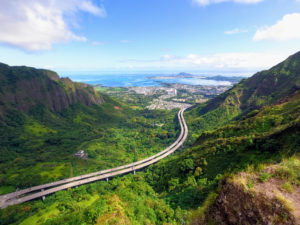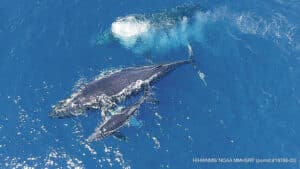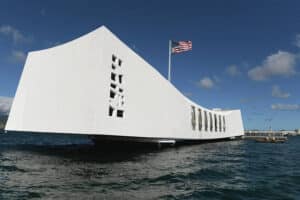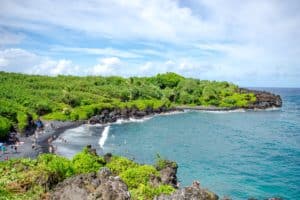Imagine waking on a crystal-clear morning to the sound of pounding surf, the trill of a dove, a mild breeze in overhead trees — or perhaps all of the above, all at once.
For vacationers inclined to choose rusticity over luxury, Hawaii offers wilderness cabins and upcountry and beach camping in some of the most spectacular settings on the planet. Whether it’s parking a camper near a white sand beach or trekking deep into lush forests or through ancient volcanic craters, spending time in Hawaii’s great outdoors is simply sublime.
Key Information
State campgrounds are open Friday through Wednesday. Permits are required and applications may be made in writing, by phone, or in person and must be received at least seven days before the camping event and no earlier than one year in advance. The maximum stay per permit is five consecutive nights and a 30-day period must elapse before a new permit is issued. Permits are free. Tent camping is permitted, but mobile campers are not allowed.
- Permit requirements and camping regulations may vary according to the county you’re in.
- Permits are issued Monday-Friday except state holidays. To get a permit you must be 18 or older.
- The only national parks with campgrounds in Hawaii are on the Big Island at Volcanoes National Park and on Maui at Haleakala National Park.
- State Park permits are issued at any district office (see list below). The permit can also be mailed to you or held at a district office for pickup.
- Notify the district office of cancellations.
- State Park Permit Offices:
Big Island of Hawaii District
P.O. Box 936
(75 Aupuni Street, #204)
Hilo, HI 96721-0936
(808) 974-6200
Oahu District
P.O. Box 621
(1151 Punchbowl Street)
Honolulu, HI 96809
(808) 587-0300
Kauai District
3060 Eiwa Street, #306
Lihu’e, HI 96766-1875
(808) 274-3444
Maui District (includes Molokai)
54 South High Street
Wailuku, HI 96793
(808) 984-8109
Apply for a state parks permit
Camping & Hiking Safety Points
When venturing into Hawaii’s less-traveled areas, your safety and comfort may depend on the following:
- No matter how short your hike or brief your stay, bring more sunscreen and water than you think you’ll need. Recommended: 2 liters of water per person, per day. Hawaii’s strong tropical sun can cause serious dehydration.
- Always hike or camp with another person.
- Bring a cell phone.
- Do not drink untreated stream or lake water.
- Always be prepared for rain. Rainstorms can roll in with surprising speed.
- Have warm clothes on hand. At elevations above 1,000 feet (and even on windy beaches), nighttime temperatures can drop by at least 20 to 30 degrees Fahrenheit. The higher the elevation, the colder it will be.
- Carry bug spray. Mosquitoes can be thick even on breezy beaches.
- Abide by posted signs and stay on the trail.
- Always obtain the proper permits to hike or camp.
- If you are a novice hiker, consider arranging a hiking tour with an activities/tour provider




